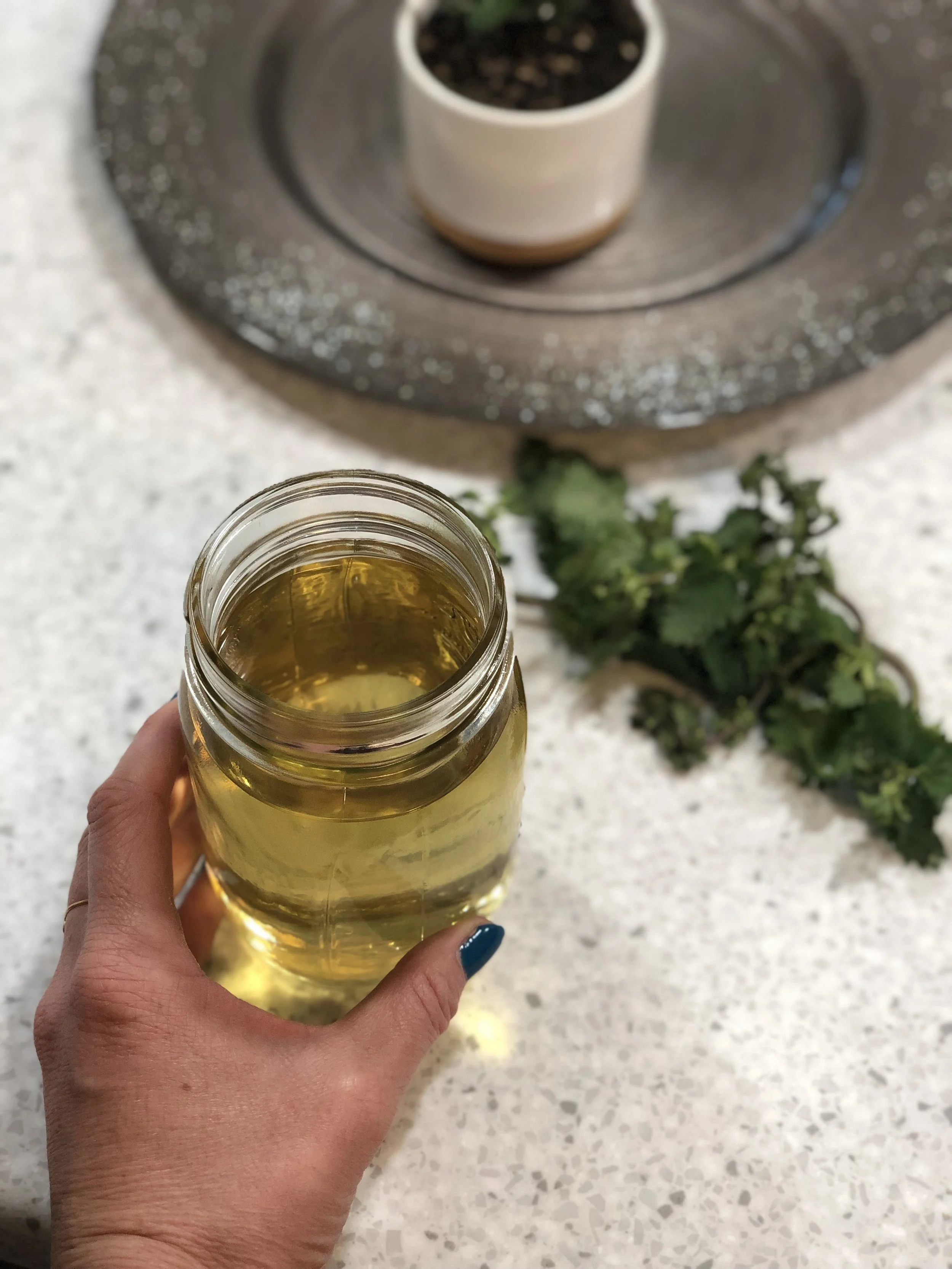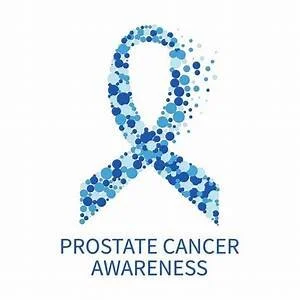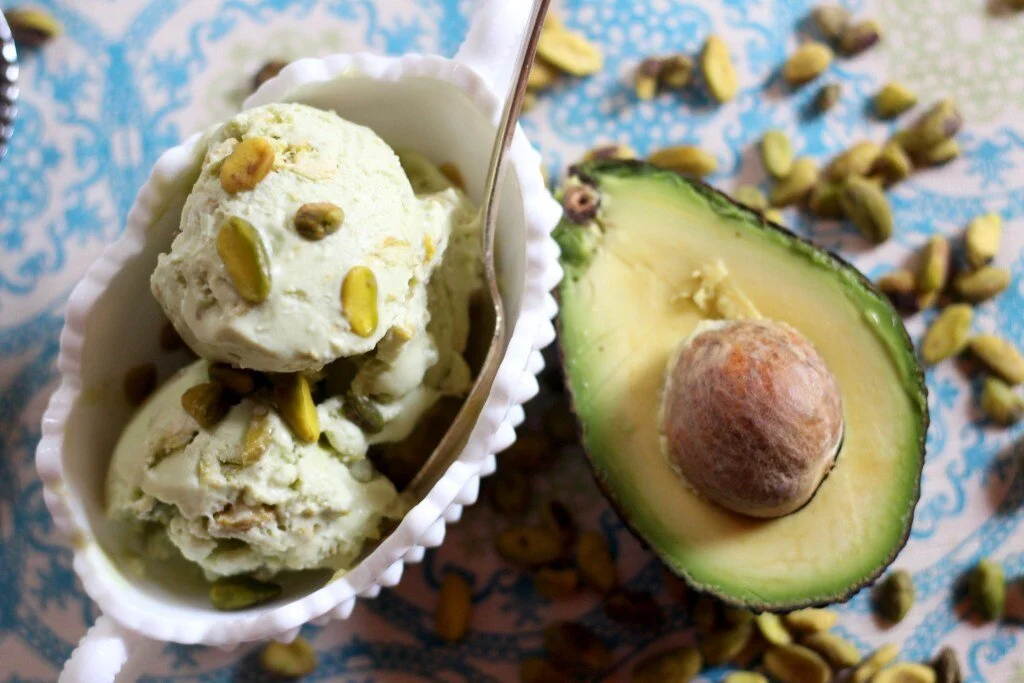Spring is officially here! While the days are getting longer and the weather is getting warmer, you may start to feel the effects of seasonal allergies as the fresh blooms become abundant around you. You’ll feel the effects of seasonal allergies when your immune system overreacts to an outdoor allergen, usually an airborne pollen. There are plenty of over-the-counter allergy medicines on the market to help alleviate seasonal allergies, but there are also many natural remedies to try that may help to reduce hay fever this season, including dietary tips, lifestyle recommendations, nutrients in foods, herbal tonics, and natural pharmaceutical options.
Sugar & Sweeteners - A Loaded Topic!
Is that a loaded topic or what? We could talk for hours and hours. For your sanity, though, let’s get right to it. Sugar is consumed in many forms and for various reasons. Americans LOVE sugar – the average sugar consumption in adults in the United States in 2017-2018 was 17 teaspoons daily. Seventeen?!
Air Fryers - why all the hype?
There are infinite kitchen appliances that are available. Which one(s) do you find the most helpful in your daily cooking? I love my Kuvings juicer; it makes amazing green juice, which I enjoy. Today, though, I want to talk about the air fryer. I’ll be honest, my husband wanted one of these for years. The product name contains ‘fryer’. How does nutrition fit with ‘fryer’ – I was skeptical. After reading more about the technology and how it truly is only air circulating at a high temperature that cooks the food, I was willing to try it out. And since then, we make so many of our foods using the air fryer. Is it a necessity? Of course not, but I do like that it cooks foods more quickly and is easy to clean. Can you replicate its effects in an oven? Absolutely, it just takes longer. An air fryer really functions more as a mini convection oven and does not technically fry food. The goal – for your food to have a crunchy, crispy exterior yet remaining soft on the inside.
Immune Boosters - help fend off COVID-19, the flu, a cold, and more!
Pomegranate - Health Benefits & Tasty Recipes
I just couldn’t get through the pomegranate season without giving them a shoutout. Adding pomegranate arils to foods makes them look so aesthetically pleasing and festive too! Pomegranates (Punica granatum L.) are an ancient fruit that is particularly cultivated in west Asia, though it is also cultivated in the Mediterranean region and other parts of the world. Pomegranates are rich in numerous bioactive compounds - various polyphenolic compounds, including resveratrol; flavonoids, anthocyanins, and phenolic acids. Research has shown that pomegranate contains 124 different protective phytochemicals! That’s right, one fruit = 124 phytochemicals! Pomegranates have been widely investigated for their antioxidant, anti-inflammatory, anti-carcinogenic, anti-diabetic, and anti-atherogenic properties. Anthocyanins, which belong to the family of flavonoids, are the water-soluble plant pigments that are responsible for the color of the fruit and its juice. Note that pomegranate juice is also high in these protective compounds, but it’s also quite high in natural sugars, 32 grams in 8 fluid ounces. So, it’s likely best to focus on eating the pomegranate arils and/or consuming a pomegranate extract.
Metabolic Detoxification
A new year is always a good time to discuss detoxification. And I’m not referring to living on lemon juice and cayenne pepper, but a full system’s reboot -- a detox plan that is well-balanced, healthy, and delicious. And therapeutic in improving your energy, restoring gut function, balancing your hormones, and more. Why? I likely don’t need to really answer that, but after all of 2021’s happenings and the holiday craziness, are you feeling your absolute best?
Healthy Holiday Recipes
Roasted Beet & Persimmon Salad
If you want a festive and beautiful salad that tastes delicious, make this one! It's full of color - red, purple, orange, and green. And you know if it's colorful, it's rich in various protective phytochemicals, including antioxidants - carotenoids, flavonoids, polyphenols, and more.
Protein Bars - Which ones are the best?
Before I dive in and discuss protein/energy bars, I want to be sure that we’re all on the same page. You want to focus your nutrition on a plan that incorporates real, whole, unprocessed foods – lots of plants, vegetables & fruits, lean and/or plant protein sources, healthful fats, and a plethora of herbs & spices. You do not want your diet to consist primarily of bars, powders, and potions. That said, a healthful protein/energy bar can be very helpful when time is limited and/or you’re on the go.
Healthy Thanksgiving Recipes
Fall Recipes - Plant-based, Orange, & Delicious!
Pumpkin Curry Soup
* Recipe adapted from The Cancer Diet Cookbook: Comforting Recipes for Treatment and Recovery written by Dionne Detraz, RDN
This soup is surprisingly easy to make and quite tasty. I started to write about it, but Dionne sums it up so nicely. Per Dionne, “This comforting soup proves that pumpkins can be so much more than just a star ingredient in your holiday pie. They are an excellent source of vitamin A and carotenoids, and they also provide vitamin C, potassium, and fiber. Like carrots, they contain phytonutrients that support immune system and lower inflammation. The garlic, ginger, and spices also boost immunity, lower inflammation, and provide anticancer nutrients – and they give this soup an incredible flavor.”
Breast Cancer Awareness Month
Over twenty-three years ago, I was involved in working with the Women's Healthy Eating & Living (WHEL) Study coordinated by the University of California, San Diego Cancer Center. The WHEL study, a multi-site controlled clinical trial, investigated the effect of diet on the recurrence of breast cancer. Early on at UCSD, night after night, I would sit in my cubicle and talk with women who had been diagnosed with breast cancer strategizing as to how best adhere to particular dietary goals. Years later, I worked directly with these women at UCSF and Stanford completing their periodic assessments and teaching monthly cooking classes. Through this work, I learned about their lives, their families, and eating habits. It was these women, WHEL study participants, who guided me in developing my passion for helping those with cancer. I will always be grateful for the WHEL study - my co-workers and the participants, who led me to fight for the cause. And I'm honored to have continued working with some of these women to this day.
Belated Prostate Cancer Awareness Month
It may be October, but it’s not too late to give a shoutout for Prostate Cancer Awareness Month (technically in September). My work with nutrition and prostate cancer began over 20 years ago when I was hired to create and run the nutrition program for the UCSF Helen Diller Family Comprehensive Cancer Center. Dr. Peter Carroll, professor and chair of the department of urology at UCSF, was one of my greatest supporters and eager for his and all prostate cancer patients to implement a healthy nutrition plan. Given his support, one of my primary goals was to learn as much as humanly possible about the connection of nutrition and prostate cancer.
Microbiome & its Far-Reaching Effects on our Health
It has become increasingly evident that the gut is essential to our health and well-being. Research regarding the microbiome is booming with new studies published everyday.
Microbiome – a fancy term that means what, exactly? The microbiome consists of all the microorganisms (yes, we have lots of bugs in our system) and their collective genetic material in the human body. It’s composed of the bacteria, viruses, and fungi living in our guts.
Cauliflower & its Health Benefits
While color is generally an excellent indicator of phytochemical content, cauliflower is one exception. It’s a member of the cruciferous vegetable family, which provides a host of protective nutrients and phytochemicals. Sulforaphane, one of the active components in cauliflower and other cruciferous vegetables, have a favorable effect on hormone metabolism. Additionally, sulforaphane and indoles, another potent phytochemical, are thought to protect against breast, colon, lung, oral, esophageal, thyroid, and prostate cancer by helping detoxify cancer-causing substances and slowing tumor development. Cauliflower is also a good source of vitamin C and folate, two disease preventing nutrients that are also important for optimal functioning of immune function.
Herbs & Spices - So much to offer!
Herbs and spices – while oftentimes an afterthought, aim to move them towards center stage. When you hear the word, antioxidant, think herbs and spices. Of the top 12 richest food sources of antioxidants, 10 of them are herbs and spices. Additionally, herbs and spices offer anti-microbial and anti-inflammatory properties as well as potential protection against cardiovascular disease, neurodegeneration, type 2 diabetes, and cancer. Lastly, when you hear the word, flavor, think herbs and spices. Herbs, both fresh and dried, dramatically enhance the flavor of almost any dish without relying on unnecessary fat or salt.
Diet & Blood Type
Plums & Prunes - Here's the Scoop!
We have a tree loaded with plums, so they’ve been on my mind a lot these days. Growing up in the Midwest, I recall enjoying the sweet taste of a plum countered with that slightly sour skin. My brother loved plums!
Plums are in the stone fruit family and rich in various nutrients, particularly vitamin A, vitamin C, and vitamin K. Vitamin A is helpful for vision, strengthening our immune function, heart, lung, and kidney health. Vitamin C is well-known for its beneficial effects on the immune system. It also plays a significant role in the production of pro-collagen, the body’s precursor to collagen and also increases the absorption of plant-sourced iron. Plums are rich in antioxidants, specifically anthocyanins, a type of polyphenols, that may help to reduce the risk of cardiovascular disease, type 2 diabetes, and cancer.
Ice Cream - Enough said...
Yes, that’s right, you read it correctly, Ice Cream. I’m devoting a newsletter to ice cream, can you believe it?! Natalie Ice Cream, but ice cream nonetheless. Any way you look at it, people love ice cream. Maybe not each and every one of you, but almost. With the 4th of July around the corner, I wanted to share with you some seriously amazing ice cream recipes.
Cancer Survivorship - is it really that simple?
I would like to give a special shout-out to all of the cancer survivors out there! Well deserved, you have a day designated to Cancer Survivorship – June 6, 2021. The NCSD Foundation states that, “National Cancer Survivors Day is a celebration for those who have survived, an inspiration for those recently diagnosed, a gathering of support for families, and an outreach to the community.”
MTHFR – what is this gene?
Add a few letters and you can likely guess what some call this gene. So, what is MTHFR? The MTHFR gene is the most well studied gene in regards to health. Methylenetetrahydrofolate reductase (MTHFR) is an enzyme produced by the MTHFR gene, hence, the name. Before we dive deeper into the significance of MTHFR, let’s first briefly discuss methylation.
Methylation is a key process that affects your stress response, inflammation, brain chemistry, energy production, immune response, detoxification, antioxidant production, cell repair, and genetic expression.





















